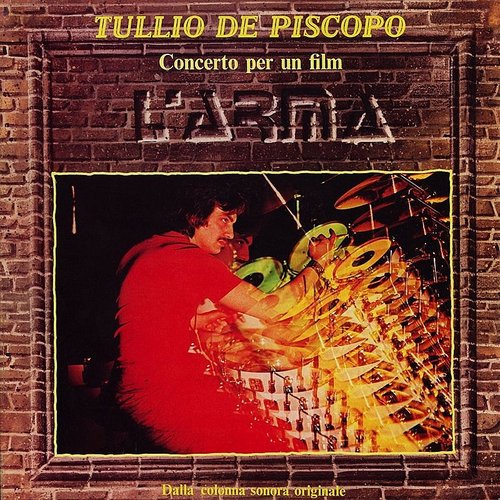
:format(jpeg):mode_rgb():quality(90)/discogs-images/R-7868637-1546887212-3891.jpeg.jpg)


Lato A
A1. West Side Story Medley (Maria - Tonight - America) (6:18)
A2. Black Star (Dal Film L'Arma) (4:58)
A3. Temptation (5:15)
A4. Cavalcata Delle Valkirie (4:05)
Lato B
B1. Tarantella P' O' Scugnizzo (6:29)
B1. Tarantella P' O' Scugnizzo (6:29)
B2. Vesale (4:19)
B3. Accattateve O'mbrello (Dal Film L'Arma) (5:40)
B4. Mbriachete Tu (Dal Film L'Arma) (4:54)
Musicisti:
Sante Palumbo, Stefano Pulga, Franco Graniero – Tastiere
Sergio Farina – Chitarra Elettrica e Acustica
Alberto Radius – Roland Guitar Synthetizer, Chitarra Acustica
Julius Farmer – Basso Elettrico, Piccolo Basso
George Aghedo – Bongos e Congas
Tullio De Piscopo – Batteria, Congas, Syntyshare, Timpani e Percussioni
Giorgio Balocco – Sax Soprano, Tenore, Sax Alto, Flauto, Ottavino
Sergio Fanni, Umberto Moretti – Trombe
Rudy Migliardi, Cesare Settantotto – Tromboni
Michele Berrino, Adolfo Strappo, Giuseppe Ferreri – Corno Francese
Gianni Zilioli – Marimba
:format(jpeg):mode_rgb():quality(90)/discogs-images/R-4992593-1480604176-8835.jpeg.jpg)
:format(jpeg):mode_rgb():quality(90)/discogs-images/R-4992593-1480604176-4068.jpeg.jpg)
:format(jpeg):mode_rgb():quality(90)/discogs-images/R-3743929-1342605873-4742.jpeg.jpg)
:format(jpeg):mode_rgb():quality(90)/discogs-images/R-3448345-1330787617.jpeg.jpg)
:format(jpeg):mode_rgb():quality(90)/discogs-images/R-3448345-1330787625.jpeg.jpg)



